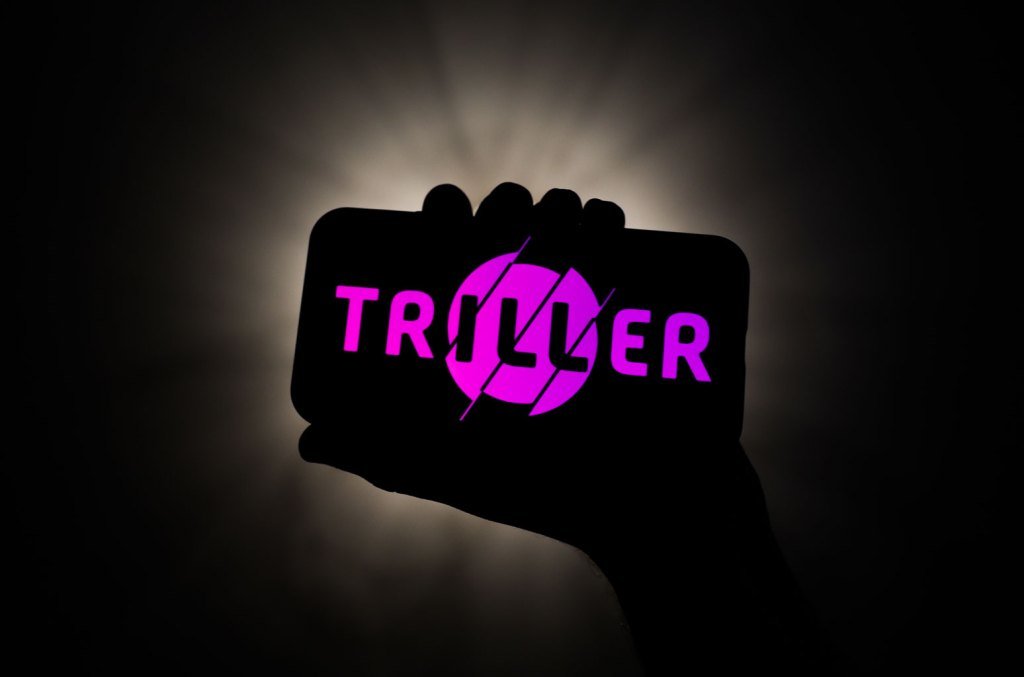Try using some of your favorite songs on the short-form video app Triller, and you’ll be hard pressed to find what you’re looking for.
On Thursday, the music catalogs for Universal Music Group, Warner Music Group, Sony Music and Merlin — which provides digital licensing to many top independent labels and distributors — were removed from the platform.
A Triller spokesperson says the platform is “reassessing each of our label deals as they come due as our catalogue music usage is a small fraction of our overall business with creators.
“Some labels are more used than others and if we can make financial arrangements which make sense for the platform, on a label by label basis, we will. In other cases the usage does not justify the cost.”
The news follows a lawsuit filed by Sony Music Entertainment in Augustclaiming Triller had “historically failed to make payments in a timely manner” but that this issue got even worse in March 2022 when Triller “failed to make any monthly payments required under the Agreement, totaling millions of dollars.”
A source at one of the other major music companies says similar breach of contract and failure to make payments, including “millions and millions in past due royalties,” was behind Triller’s decision to pull these catalogs. The Triller spokesperson, however, called that claim “false and grossly inaccurate.”
Representatives for Universal, Warner, Sony and Merlin declined to comment.
In a Thursday morning email, Merlin’s senior director of business and legal affairs alerted members that Triller had “commenced the takedown of Merlin content.” He continued, writing “at this stage we do not believe that Merlin is the only licensor/content provider to have had content taken down. The term of our current agreement with Triller has now expired. We will update members as soon as we can regarding renewal discussions.”
Merlin members include Secretly Group, Mom + Pop, Monstercat, Symphonic, Ninja Tune, Beggars Group, FUGA, ONErpm, Domino, SubPop, Vydia and more. The Triller spokesperson told Billboard when asked about the Merlin email, “We are in active conversations with Merlin and expect to renew our relationship and continue our friendly and successful partnership.”
“As Triller has grown and expanded its portfolio of services for creators as an open-garden platform, we are recalibrating some of our partnerships with a focus towards showcasing talent and maximizing their monetization,” that statement continued.
A glance at Triller’s Discover Music page shows that there are now few official music options available after the takedowns, and the promoted new releases and top picks are largely artists with no label affiliation. The only traces left of some label-signed artists are available through searching “OG Sounds,” which are typically user-created soundtracks like remixes that sometimes contain copyrighted material, or if a signed artist collaborated as a feature on a song released independently.
The public rift between Triller and the music business dates back to about 2020, when chairman and CEO of the National Music Publishers’ Association (NMPA) David Israelite criticized the app in an Instagram post, saying Triller needed to fully license its members works. “It’s a simple proposition – license songs before you use them,” he wrote.
In November of that year, Wixen Music Publishing filed a 15-page lawsuit against Triller, suing the company for $50 million dollars, stating in the complaint that Wixen felt encouraged when Triller’s CEO appeared to agree with the NMPA’s criticism that summer, but then, after months with no agreement reached, Wixen opted to file the lawsuit.
In the indictment, Wixen alleged Triller had “brazenly disregarded copyright law and committed willful and ongoing copyright infringement,” of its more than 1,000 song catalog. The lawsuit was dismissed in February 2021.
Eventually, in March 2021, Triller came to an agreement with the NMPA on behalf of its members.
Also in early 2021, Universal Music abruptly pulled its catalog from Trillersaying the app “shamefully withheld” artist payments. A source familiar with the matter told Billboard at the time that the payments UMG claims Triller is withholding went back several months. Three months later, the two companies announced a new, worldwide licensing agreementspanning recorded music and publishing and restoring the UMG catalog to the app.
This August, Timbaland and Swizz Beatz also sued Triller for failing to make payments due on the sale of their popular Verzuz livestream series the year prior. They claimed the platform still owed them $28 million from the deal 18 months later. That lawsuit was settled in September.
Outside of music, there have been other claims against Triller for allegedly failing to make owed payments. Boxing journalist Dan Rafael reported that Triller had not fully paid several fighters and crew members from a May 2022 fight. In August, the Washington Post reported that Triller “promised millions to Black creators” to use the app as part of a paid influencer programbut “nearly a year after…its payments to many creators have been erratic — and in some cases, nonexistent.” In September, it was also sued by a smartphone app consulting firm that said it was owed more than $132,000 in unpaid fees.
Over the past two years, Triller has repeatedly announced plans to go public but has so far failed to do so — initially through the formerly-popular ‘SPAC’ merger process, and then in June this year filed paperwork with the U.S. Securities and Exchange Commission indicating that it plans to take a more traditional IPO route. In late September, the company announced it had secured $310 million from Luxembourg-based private alternative investment group for a 36-month term following a public listing of Triller’s common stock and would aim for a public listing by early in the fourth fiscal quarter (October-December).




